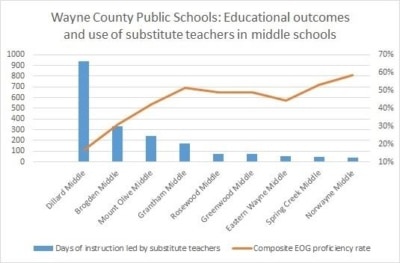Editor’s Note: During the week of Thanksgiving, we wanted to take a look back at the inaugural Carolina Food Summit. The Food Summit explored the intersections of food and policy, hunger, nutrition, school lunch, family ties, and other topics that will arise as we gather around our Thanksgiving table this week. In addition, our co-founder Ferrel Guillory invited some students from one of his journalism classes to cover the Food Summit. Given our belief that first person perspectives and nurturing young voices matter, we wanted to spotlight their work as well. Enjoy your Thanksgiving.
“The negative history associated with the South can be complicated and hurtful to everybody.” Author Toni-Tipton Martin uses food as a way to look back on the past in a positive way and spark racial reconciliation as the South moves forward from its dark past of segregation.
Martin gave a keynote speech at the Carolina Food Summit in September in which she stressed the importance of understanding and appreciating their history for African Americans. In her book, The Jemima Code, Martin reviews 150 rare African-American cookbooks that date back to 1827. Martin hopes these untold stories written by African-American cooks in their own words help to break racial stereotypes and create role models for African Americans today.
Racial reconciliation
Aunt Jemima is a southern construction that perpetuates the stereotype of the African-American Southern woman. Someone who is illiterate, someone with magical cooking skills but who would never hold a job outside of the kitchen. The image of Aunt Jemima on a package keeps her perpetually a slave.
The Jemima Code is a celebration of the stories of people in black history who have been overlooked. Martin said it is important for African Americans today to hear these stories to understand that these women were so much more than the stereotype.
These cookbooks communicate the work ethic of African Americans of the past and reveal that African-American cooks used more than just intuition in their practice; they were intelligent workers who used French techniques and had the mental dexterity to memorize hundreds of recipes. Martin hopes these details paint a more complete history of the South and help African Americans today find role models in their ancestors.
Martin said hearing the stories of African-American cooks of the past is also important for whites who still deal with the guilt and the confusion of living through the years of Jim Crow. She titled her book The Jemima Code because of the coded language of the Aunt Jemima image: “The way it can evoke a feeling of love and appreciation for a woman who raised you while also evoking a feeling of shame after years of oppression.”
Food as a mediator
Martin said she wants to use her book as well as conferences around the country to raise more awareness about the African-American diet. She hopes to empower African Americans to become more economically independent and to restore their health.
The South has experienced a “culinary segregation.” The African-American diet in the South is driven by fast food and capitalistic investments in minority communities. There is a certain status associated with carrying certain fast food bags. And, healthier options that have emerged in recent years are considered too trendy and too white, and, therefore, African Americans used this association as a reason not to eat healthy.
The unhealthy eating habits in African-American communities today do not reflect the diet of African Americans of the past. Soul food was developed in poor communities where people did not have access to healthier options and became a staple of African-American cuisine, but African Americans did not always eat this way.
Martin said, “Africans did not consume much meat and consumed a largely plant-based diet. They ate dark leafy greens, sweet potatoes which are vivid in color, and whole grains found in corn meal. These are elements of our history that we’ve forgotten as we tried to assimilate.”
Because African Americans today suffer from diseases in which diet is a risk factor, Martin implores African Americans to look at their history and remember what their ancestors used to eat. Share croppers used to plant gardens when they could, asparagus was a popular commodity in African-American households, and African-American cooks took advantage of the pot liquor from the stems when making collard greens in order to maintain their health.
Looking back to move forward
Although Martin admits her own parents left “skid marks” when leaving the South and that it is painful for them to talk about stories of their days living in segregation, she maintains the importance of looking back at history to correct its damages and move forward. She said that African Americans must be conscious of the lives of those who came before them in order to move forward.
Unity is necessary between blacks and whites in order to more accurately portray the stories of African Americans in the past in the South and to form a better future for both races in region. Martin hopes learning more about history will inspire African Americans today to improve their own lives in regards to their health, economic situation, and spirit.





